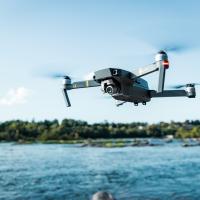A Look Inside the Cajun Navy
Before Hurricane Katrina hit, the “Cajun Navy” didn’t even exist.
But in the aftermath of the storm, a group of volunteers that helped rescue thousands flood victims stranded in their homes and vehicles have come together again. Their goal? To work together to better assist people in times of need directly following a natural disaster.
They call themselves the Cajun Navy, and their work following Hurricane Harvey and other storms has shown that civilian-led rescue is more than just a trend—it’s a necessity.
What is the Cajun Navy?
Predicated on the idea that civilians can make a difference, the Cajun Navy attempts to bring together a loose collection of individuals into a bonafide search and rescue effort.
And while organizers admit there’s a bit of trial and error involved, the desire to help those in need is providing the way forward. In fact, as they work to improve their skills before the next natural disaster strikes, Cajun Navy organizers are hoping to establish at least a FEMA standard of assistance—something that should help them save more lives.
But where such efforts have been a mix of successes and failures in the past, the Cajun Navy hopes to better utilize their volunteer resources by integrating one crucial bit: technology.
Technology and the Cajun Navy
While mindful citizens have been helping their neighbors for as long as there have been regional catastrophes, the big barrier to independent search and rescue has always been a lack of information—both of where help is needed most and the holistic view of the entire effort.
Technology has helped change all that. Anyone with a cell phone can communicate with countless people in real time, and even complicated weather forecasts and road closures are only a tap and a swipe away. The information and tools that used to be limited to large-scale organizations and official rescue efforts are now available to anyone that wants to join in.
This has enabled groups such as the United Cajun Navy and the Cajun Navy Relief & Rescue to organize and better operate their fledgling efforts—after all, lives are at stake. In fact, if you find yourself in need, you can even request help directly from the Cajun Navy Relief website.
Now, when emergency strikes and volunteers arrive, everyone jumps onto Zello and Glympse, phone apps that add walkie talkie-like group communication and GPS tracking capabilities for all volunteers. This helps organizers and dispatchers keep track of their resources and encourages the sharing of information.
Today, it’s just a test and part of the Cajun Navy’s inaugural Search and Rescue Games, but they hope that the lessons learned now will help future rescues.
If you’re inspired by the amazing work the Cajun Navy is doing, check out “search angels” —volunteers who scour birth records and websites to find the birth relatives of adoptees.
For more interesting news about the issues and topics that drive our world, keep it right here on Freethink. We’re Freethink Media, and we move the world, one story at a time.
